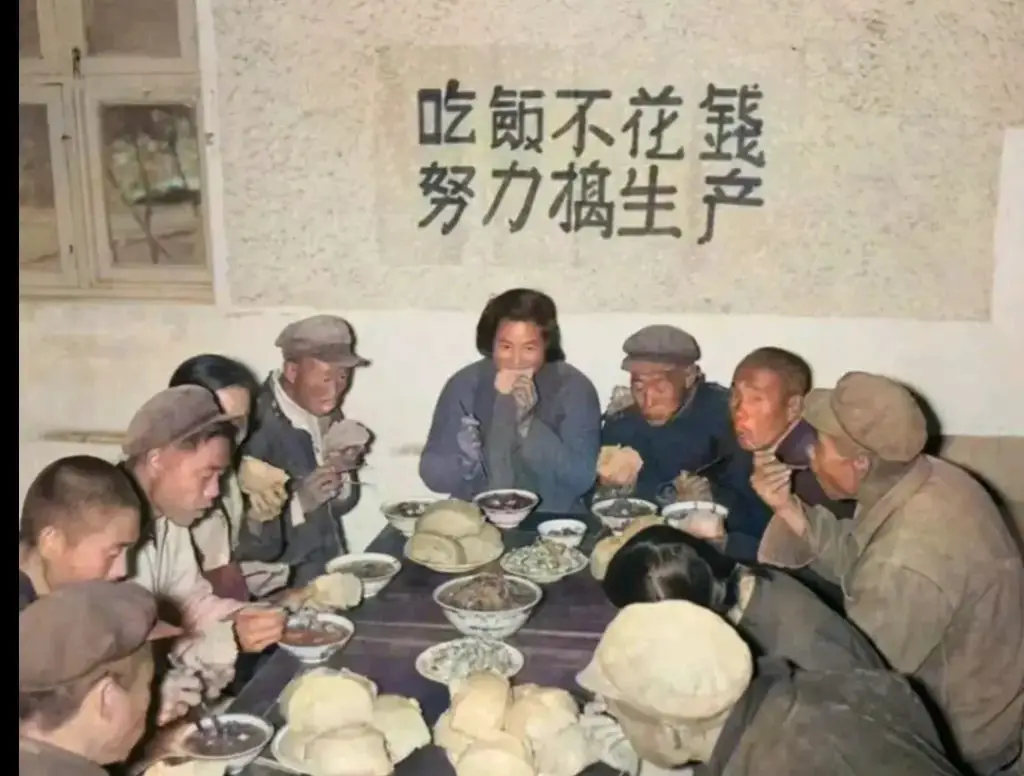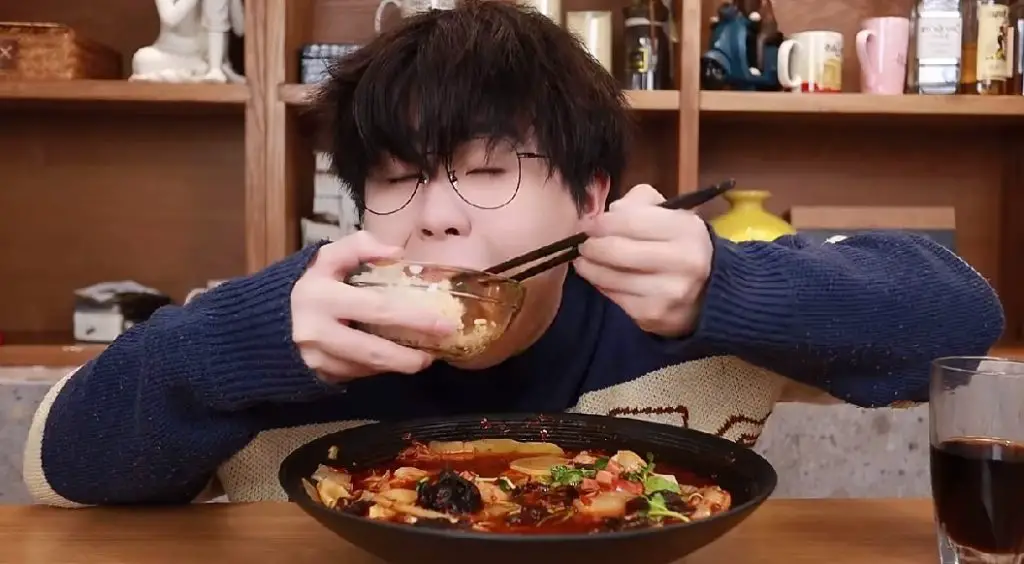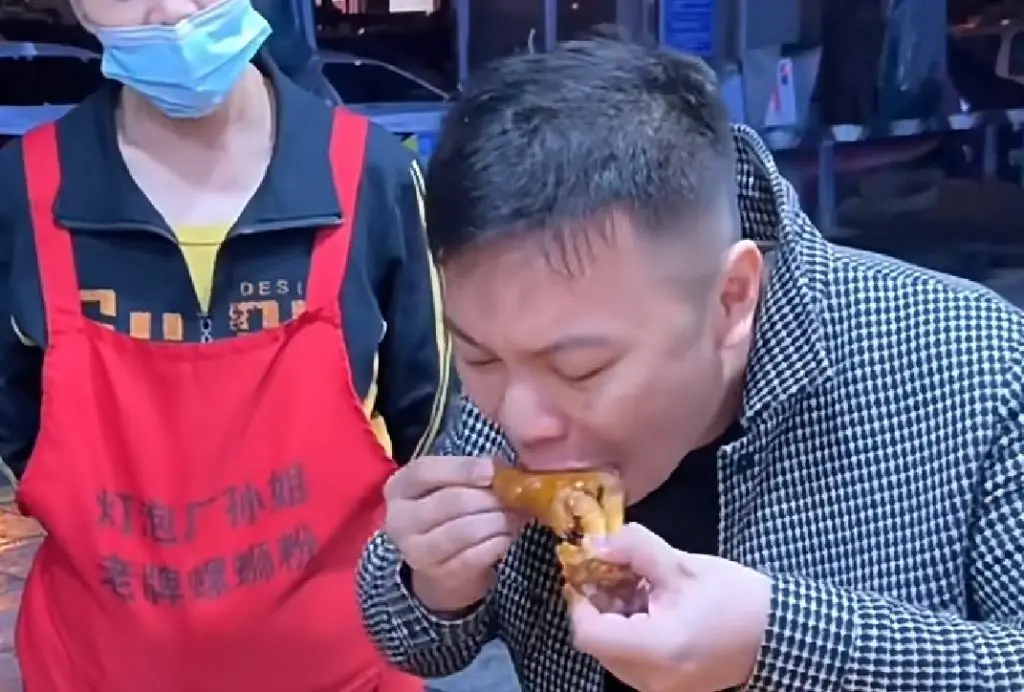In the Western world, eating slowly and savoring each bite is often seen as a sign of appreciation for good food.
However, this is not always the case in Chinese culture. In China, eating quickly is the norm, and it is not uncommon for meals to be over in a matter of minutes.
But why is this the case?
Why do Chinese eat so fast?
Cultural Factors
Several cultural factors contribute to the fast-paced eating habits in China.
- Firstly, many Chinese people lead busy lifestyles, with long work hours and a lack of leisure time. This means that they need to eat quickly to keep up with their schedules.
- Additionally, Chinese dining is often family-style, with large dishes shared among a group of people. In this setting, eating quickly is essential to ensure that everyone gets their fair share of food.
- Furthermore, Efficiency is highly valued in Chinese culture, with a focus on getting tasks done quickly and effectively.
Historical Factors


The fast-paced eating habits in China can also be traced back to historical factors.
In agrarian societies, communal eating was common, with people sharing large meals to maximize resources.
This practice continued during times of war and famine when food was scarce, and people had to eat quickly to ensure that they got enough to eat.
During the industrialization period, quick meals became even more crucial, as workers needed to eat quickly to maximize their productivity.
(If you observe Chinese people eating rice or porridge, you may notice that some of them lift their plates or bowls in order to eat faster; have you ever wondered why they do this?)
Why do Chinese lift their plates to their mouth when they eat?

- In Chinese culture, it is customary to lift up your rice bowl when eating instead of lifting plates. While eating, it is acceptable to hold the bowl close to your mouth as you use chopsticks to finish the food or rice. Failing to lift the bowl while eating can be considered impolite as it may result in rice or food falling off the bowl and onto the floor or yourself.
- Furthermore, lifting the bowl while eating can also be seen as a way of showing politeness by hiding one’s mouth while chewing food. This practice is particularly helpful if you need to constantly put food in your mouth while chewing.
- In addition, lifting the bowl can also be a useful way of stopping others from putting more food in your bowl. In Chinese culture, it is common for people to share food, especially with foreigners. To prevent others from adding more food to your bowl when you have had enough, lifting the bowl is considered proper etiquette.
- In conclusion, lifting up the rice bowl when eating is a sign of good manners in Chinese culture. It is considered acceptable and practical as it helps to avoid spills and demonstrates good table manners.
If you spend some time living in China, you may observe other cultural practices such as:
why Chinese food makes me sick?
why some Chinese people have slanted eyes?
why some Chinese children wear kaidangku?Why do Chinese stuff their mouth with food?

That being said, there are a few possible cultural reasons why some Chinese people may appear to stuff their mouth with food:
- Sharing culture: In Chinese culture, it is common to share dishes and pass food around the table. People may take larger bites or stuff their mouth with food to ensure they get their fair share of the dish.
- Eating quickly: In some Chinese cities, mealtimes can be rushed due to busy lifestyles or work schedules. People may eat quickly and take large bites to finish their meal within a limited amount of time.
- Taste preference: Some Chinese dishes are designed to be eaten in larger bites, such as soup dumplings or baozi. These dishes often have a burst of flavors and juices inside, which can be more enjoyable when consumed in one big bite.
- Politeness: Chinese dining etiquette emphasizes not wasting food and finishing one’s plate. Some people may stuff their mouth with food to avoid leaving any leftovers, out of respect for the host or the food.
Why do Chinese cover their mouths when drinking?
In Chinese culture, covering one’s mouth when drinking is considered polite and respectful.
The reasons behind this practice can be cultural, practical, and historical.


- Cultural significance: In Chinese culture, covering one’s mouth while drinking is seen as a way to show respect to others and to avoid being impolite. It is also a way to avoid making loud slurping sounds while drinking, which can be considered impolite.
- Practicality: Many traditional Chinese cups and bowls are designed without handles, making them hot to the touch when filled with hot liquids. Covering the mouth with the hand can help prevent burns while drinking.
- Historical reason:Although covering one’s mouth while drinking is no longer a common practice in China, it was a custom that existed in the past and is often depicted in historical dramas. It was likely adopted as a form of etiquette by the educated class, who placed a great emphasis on appearing civilized in ancient times. The movements of the mouth while drinking, especially when drinking tea and spitting out tea leaves, may have been considered ungraceful. Additionally, the wide and long sleeves of formal clothing at the time made it easy to cover one’s mouth while drinking.
FAQs:
According to Chinese tradition, there are a few potential drawbacks to eating quickly. One is that it can lead to overeating and digestive issues, as the body may not have time to properly process the food.
Additionally, there is a belief that chewing food thoroughly is important for overall health and wellbeing, as it allows the body to extract more nutrients from the food.
Some traditional Chinese dishes that are designed to be eaten quickly include dim sum, hot pot, and jianbing (a type of Chinese crepe). These dishes are often served in small portions and are designed to be consumed quickly so that they can be enjoyed while they are still hot and fresh.
Communal meals and shared dishes are an important part of Chinese dining culture, and they can contribute to the fast eating habits of Chinese people. When there are many dishes to share and many people at the table, there may be pressure to eat quickly so that everyone can enjoy the food together.
Additionally, sharing dishes can be seen as a sign of generosity and hospitality, and eating quickly can be a way to show appreciation for the host and the food.


